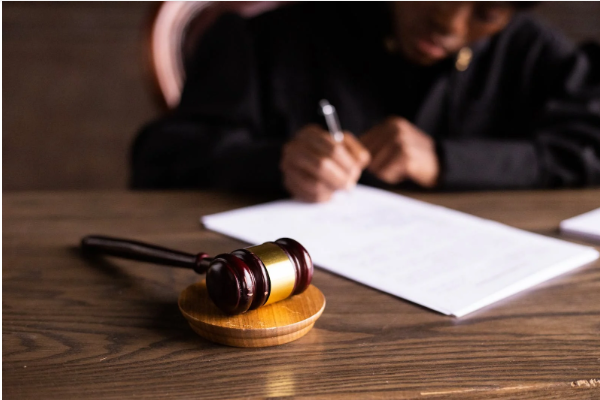A criminal procedure is a set of legal rules and regulations that are used to govern proceedings in a court of law. It covers all aspects of the criminal justice system, from arrest to trial and sentencing. Having an understanding of these legal facts can help ensure your rights are protected throughout the process. It’s important to know your rights and be aware of what is expected in the criminal justice system. Here are 8 legal facts you need to know about a criminal procedure.
1. Lawyers
Everyone accused of a criminal offense is entitled to representation by an attorney. The government has to provide legal assistance if the defendant is unable to pay for their own lawyer. In the words of McKinney Criminal Defense Lawyer, the Sixth Amendment of the United States Constitution guarantees everyone accused of a crime the right to an attorney. A defendant’s right to an attorney applies throughout the criminal proceeding, and they are guaranteed legal representation during every stage of the process, including pretrial proceedings, trial, sentencing, and any post-conviction actions. It’s important to understand your rights and make sure you are getting the best legal representation possible.
2. Pre-Trial Proceedings
The pre-trial proceedings are the legal processes that occur prior to the beginning of a criminal trial. During this stage, lawyers from both sides can investigate the facts of the case and prepare their arguments for trial. It’s important to understand what types of evidence will be presented during pre-trial proceedings and how it might affect your case. Also, it’s wise to be aware of the possible outcomes and potential consequences that may result from a plea bargain or agreement. While a defendant may be tempted to accept a plea bargain, it’s important to remember that a plea agreement can also have negative consequences.
3. Trial
The criminal trial is the stage of the process where evidence and arguments are presented to a jury or judge. This is the most important phase of the criminal procedure as it determines whether a defendant will be found guilty or innocent. During this stage, witnesses may be called and cross-examined in order to determine their credibility. It’s important for defendants to understand their rights during a criminal trial and make sure their lawyer is presenting an effective defense on their behalf. Additionally, defendants should be aware of their right to remain silent, and understand the possible consequences of any statements made in court.
4. Sentencing
Sentencing occurs after a defendant has been found guilty by either a jury or judge. The judge then considers various factors when deciding what type of punishment should be imposed on the convicted person. These factors include the severity of the crime committed, prior convictions or criminal history, and mitigating circumstances. It’s important to understand the various sentencing options available so that you can make an informed decision about your case. It’s also important to take into consideration any potential consequences of a certain sentence, including the possibility of probation or parole.
5. Appeals
In some cases, a convicted person may be able to appeal their sentence or conviction if they believe it is unjust or incorrect. If a defendant chooses to appeal their verdict, the appellate court will review the trial record and consider whether any errors were made during the process. An appeals court will also look at whether there was sufficient evidence for a conviction and if the punishment was appropriate for the crime committed. It’s important to understand how this legal process works in order to make an informed decision about your case. This includes understanding the types of evidence that can be admitted and how to effectively present your argument.
6. Probation & Parole
If a defendant is sentenced to probation or parole, they must adhere to certain conditions that are imposed by the court. This includes regular reporting to a probation or parole officer, maintaining employment, avoiding contact with victims of the crime committed, and refraining from using drugs or other controlled substances. It’s important for defendants to understand their rights and responsibilities while on probation or parole in order to avoid any violations. While these conditions may seem strict, they are designed to help offenders become productive members of society and reduce the likelihood of them re-offending.
7. Post-Conviction Relief
In some cases, a defendant may be able to file for post-conviction relief if there was an error during the trial process that could have potentially affected the outcome of their case. This relief can include filing a motion for a new trial or direct appeal, requesting a pardon from the governor of the state, or filing for a writ of habeas corpus. It’s important to understand this process and how it could potentially help your case in order to make an informed decision. If post-conviction relief is granted, it could potentially reduce the sentence or lead to a new trial. This could result in a less severe punishment or even an acquittal.
8. Plea Agreements
A plea agreement is a way for defendants to plead guilty or no contest to a criminal charge in order to receive a lesser punishment. This agreement typically involves the defendant agreeing to certain conditions, such as entering a drug treatment program, completing community service hours, paying a fine, or accepting a reduced sentence. It’s important for defendants to understand their rights and all the possible consequences of entering into such an agreement before making any decisions. A plea agreement can be beneficial if it means avoiding jail time or other severe punishments, but it is also important that defendants understand that they are still pleading guilty and must adhere to all the conditions set forth in their plea agreement.

Understanding these eight legal facts about the criminal procedure is essential for anyone facing criminal charges. Having this knowledge can help defendants make an informed decision about their case, as well as understand their rights and any potential consequences of certain decisions. It’s important to seek legal advice from a qualified attorney in order to ensure that your rights are fully protected and that you are making the best possible decisions for your case.
